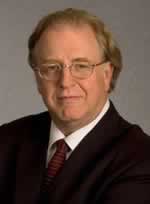
Commentary
Inside the First Amendment
By Gene Policinski
First Amendment Center
The five freedoms in the 45 words of the First Amendment are simple enough to list: religion, speech, press, assembly and petition. But in 2009 Americans once again found some unique, conflicting and at times ironic ways to interpret or apply those five basic rights.
- In Texas, four cities and 15 elected officials cited their personal free-speech rights in a lawsuit that claims they should be able to have private discussions about public business. The Texas Open Meetings Act forbids such conversations when a quorum, the number required to take action, is involved. For any number less than a quorum, chatter is fine, by the way.
The Texas Attorney General’s office intends to fight the legal challenge. A spokesman said the lawsuit “turns the First Amendment on its head,” and noted that “open meeting laws have been upheld under the First Amendment by every court in the country that has ever considered the issue.”
- In Oklahoma City, state legislators recently voted to place a Ten Commandments monument on the state capitol grounds, a replica of the stone Decalogue used in 1956 by film director Cecil B. DeMille to tout his epic movie, “The Ten Commandments.” The Sooner-or-later legislators took note of a 2005 U.S. Supreme Court decision — Van Orden v. Perry — allowing a similar monument to remain on the Texas statehouse grounds.
But opponents noted the Court’s opinion was based in part on the fact that the Texas display had been in place for decades — and that it was just one of many secular monuments placed there. And in Oklahoma’s own Haskell County in July the 10th U.S. Circuit Court of Appeals refused to reconsider a decision that a Ten Commandments monument on the courthouse lawn was unconstitutional because it had the primary effect of endorsing religion.
- In Washington, D.C., officials organizing a recent gathering of federal departments to discuss open-government principles decided it would be more “efficient” — and that discussion would be more candid — if the session were conducted (as you may have guessed already) behind closed doors. The decision qualified for a special “bad timing” citation: Just a day later, the White House debuted a plan, nearly a year in the making, ordering every federal agency to be more transparent and responsive to the public.
In a related development, more than 400 million pages of secret Cold War records are set to be opened to the public on Dec. 31. But the Obama administration’s creation of a new National Declassification Center on Jan. 1, 2010 — though intended eventually to speed up declassifications — will initially delay release of the Cold War documents. Freedom-of-information advocates had hoped for a bulk release similar to a previous approach to a huge backlog of classified World War II materials.
- In Truth or Consequences, N.M., free-speech advocates warned of likely negative consequences in telling the truth to local officials until the city commission backed off a rule requiring citizens to submit remarks for review one day before public meetings in order to get permission to speak.
- Early next year, Congress appears likely to vote on a proposed law to shield journalists in federal courts, in some circumstances, from having to identify confidential sources. Of necessity, the bill will include a definition of who is a journalist. And even though the bill now includes bloggers and freelance writers along with those working for news organizations, critics fear that imposing any designation of "who qualifies" clashes with the concept of a free press.
The First Amendment Center’s annual State of the First Amendment survey shows that just four in 100 Americans can name all five freedoms in the amendment, even though we’ve had them since it was enacted in 1791 as part of the Bill of Rights.
In 2010 the challenge again will be to avoid gutting the real meaning of our basic freedoms even as we continue to define the real-life application of those 45 words.
Gene Policinski is vice president and executive director of the First Amendment Center, 555 Pennsylvania Ave., Washington, D.C., 20001. Web: www.firstamendmentcenter.org. E-mail: [email protected].








